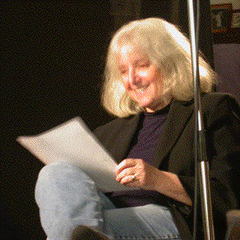The Dalai Lama
Yesterday I watched a run of movies about the life of the Dalai Lama and his escape from Tibet to India where he remains as Tibet continues to be destroyed by the Chinese. I had heard from Paul Ekman, a famous emotion researcher, about his remarkable experience when he was in the presence of the Dalai Lama. He felt peace for the first time in his life. His proneness to anger dissippated, and when he returned to the United States, he continued to be an altered person. It was three months before his temper returned, and I think he then went into some type of Buddhist training, although I am not certain about that. I heard about a man who was cooking for the Dalai Lama when he was in San Francisco, and he too reported that being in the presence of the Dalai Lama was a remarkable, life enhancing experience. There is something in this story that brings a lesson to all of us, as the tales of global warming become more realistic every day, and we see that the effects are already upon us. I do Kundalini Yoga, but I keep lapsing in my program. The mind training involved in this simple practice is something I need, and the question I pose to myself is: Why do I turn my back on my practice for weeks at a time? When should I be doing my practice, what time of the day? Will it make a difference if I build that into my "scaffold" that a wrote about a few weeks ago? I am still constructing it, I've made great progress, but a Yoga practice is not yet in it. I think I could take some hints from Steve Pavlina who said something about getting on your running shoes as the way to get yourself running. Pulling out my yoga mat at the same time every day, then putting on my yoga pants might be the simple answer to my dilemma. There is something in the practice of monks and yogis that effects the brain as studied by fMRI. What are we all waiting for?
The American Psychological Association and Atrocities
Last week the APA convention was held in San Francisco, so it was easy for me to attend. I only went for two half days, one to present a poster describing some of my research, and the second to register and attend a few meetings. I went to hear Phil Zimbardo and as usual his session was worth discussion. Zimbardo has been campaigning for some years now, in defense of our soldiers involved in torture in Iraq and Guantanamo. Zimbardo was the scientist who carried out the famous Stanford Prison study. The study selected normal healthy, well adjusted Stanford students for participation. Some were to be "prisoners" and some were to be "prison guards." Zimbardo had thought that dispositional differences between the prisoners and guards would determine their behavior in the course of the study. What happened instead was that the prison guards got carried away, thaqnks to the conditions of the study, and began to exert such cruelty upon the prisoners that the study had to be stopped after only five days. Zimbardo and the research team concluded from this study that normal healthy, non sociopathic people will turn into perpetrators of absolute evil given the right conditions. He said "You think you know yourself, and you think you know the people near to you, but you don't. You have no way to know what you will do under certain conditions." He spoke of Abu Ghraib and Guantanamo conditions, the orders from the authorities, everyone going along with it, secrecy, all producing a situation in which ordinarily kind people became evil. Could this happen in a community in which everyone engaged in a Buddhist practice? I think not. As a country became Buddhist over the past thousand years, all prior tribal warring stopped and a blanket of peace came over the land we know as Tibet. It was the migration of hundreds of thousands of Chinese that turned Tibet into a blood bath. The pictures from the news showing the atrocities committed against the monks remind me of Abu Ghraib.
I used to think "there are no private solutions" and perhaps its true, there aren't. However, why ignore a private solution when one becomes obvious, just for some old political principle. A daily yoga practice belongs on my morning scaffold. I can do a 30 day experiment. I wake up at 5:30 every morning now, automatically, what started as a 30 day experiment became a wonderful new habit. I'll report back on how it goes.
Monday, August 27, 2007
Subscribe to:
Post Comments (Atom)


No comments:
Post a Comment